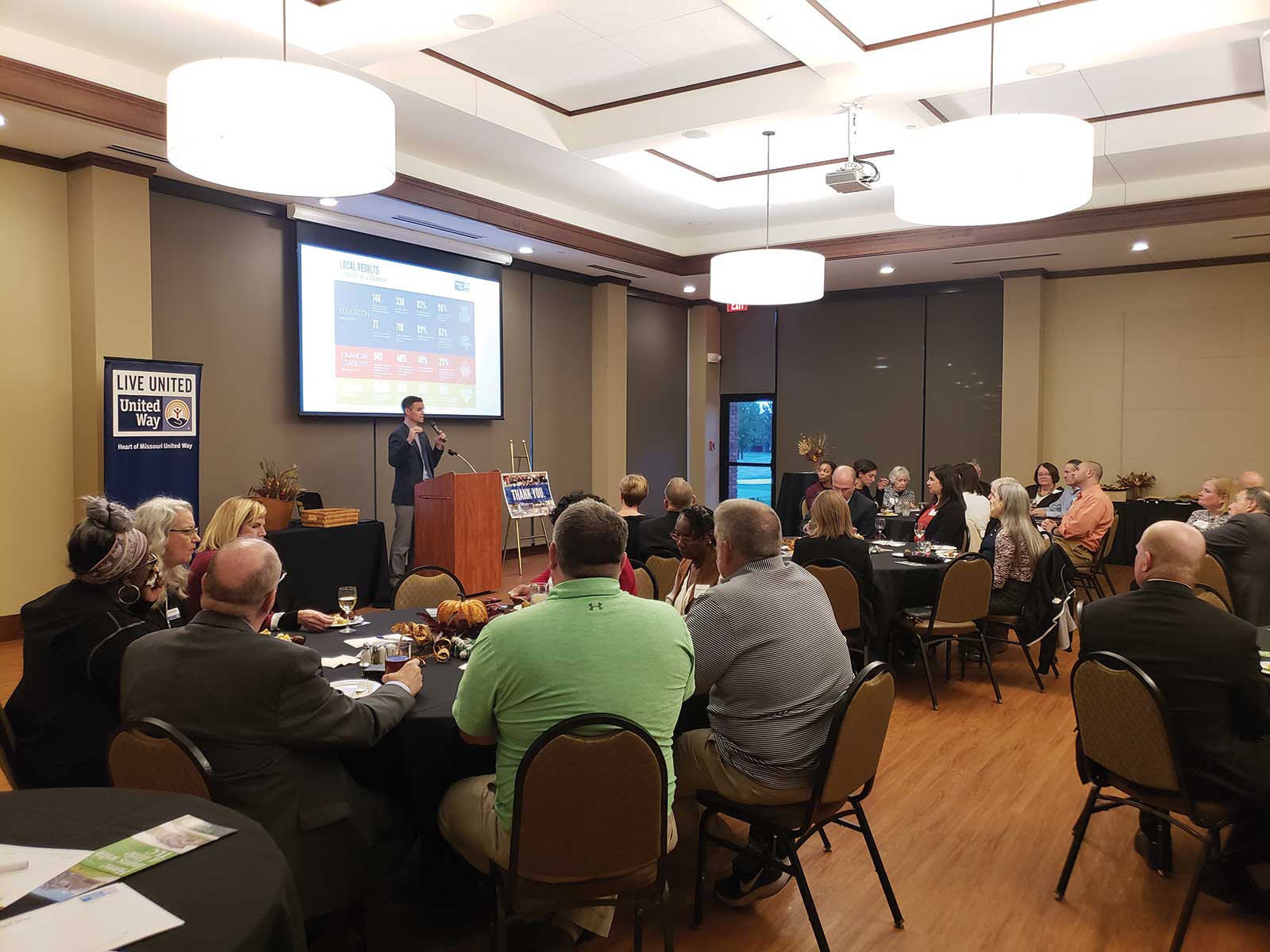Fighting to Improve Lives

Heart of Missouri United Way celebrates 75 years.
In the aftermath of World War II, Columbia fell victim to shortages of food, housing, and jobs. The Community Chest of Columbia, the forerunner to Heart of Missouri United Way, was founded in 1946 to allocate funds to help those in need. Now, 75 years later, the work the Mid-Missouri chapter does is eerily similar. “Our mission is to fight to improve lives in the community,” Community Impact Director Rachel Delcau says. “When we see a need in the community not being met, we facilitate conversations, make connections, collaborate to find solutions, and provide resources to help fill that gap.”
Though the local United Way has always helped people living in poverty, there are some differences in how they do so. “We’re now a community impact organization, meaning that we look at how donor dollars are producing outcomes,” Rachel says, mentioning that under the Community Chest model, the organization would have funded a shelter for people experiencing homelessness and only look at how many people they provided shelter to. “Now, our organization recognizes that we have individuals in the community experiencing homelessness, but ask ‘What are we doing in terms of helping them secure stable housing and income?’”
Under the Community Chest model, Rachel explains, the Mid-Missouri chapter also limited their partner agencies to “allocate funds to their clients and their blood relations.” Today, the number of people the organization reaches has grown tremendously under the Community Impact model. They provide Community Impact grant funding to 34 local agencies in Boone, Cooper, and Howard counties in the targeted areas of health, education, and financial stability. The recent creation of their Equity Fund allows Heart of Missouri United Way to reach organizations led by Black, Indigenous, and other people of color and meet needs in the community not addressed through their Impact funding.
As much as Heart of Missouri United Way raises money to remove barriers in the community, one of their strategies to effect change is to raise community-wide awareness about the inequities in society and provide solutions about how to address those inequities.
The group released its seven-week Equity Challenge in 2020, designed to provide an awareness and understanding of racism. So far, the Equity Challenge has engaged over 1,100 individuals. “Our goal is to help people understand the power and privilege they have and identify what steps they can take to create change in our community,” Marketing and Communications Director La Toya Stevens says. Rachel and La Toya also offer Equity Building Dialogues tailored to the needs of each participant group, whether it’s in a classroom setting, corporate workspace, or community forum.
The Equity Challenge has succeeded in raising awareness. Follow-up surveys revealed that respondents displayed a greater awareness of issues related to equity and had a greater sense of accountability, according to an evaluation by a group of students at the Harry S. Truman School of Public Affairs on the effectiveness of the Equity Challenge. Fifty-seven percent of respondents reported that they were taking actions to improve equity in their community, the evaluation says.
Raising awareness also includes helping people learn the connection between diversity, inclusion, and equity.
Today, diversity, equity, and inclusion efforts in the workplace are designed to increase the breadth of perspectives. However, La Toya explains that meeting quotas for diverse hires “doesn’t meet the mark.” The Heart of Missouri United Way defines equity as “the intentional inclusion of everyone in society.” It continues: “Equity is achieved when systematic, institutional, and historical barriers based on race, gender, sexual orientation, and other identities are dismantled and no longer predict socioeconomic education and health outcomes.”
Under this definition, “a workplace can’t have diversity and inclusion if it doesn’t first have equity,” Rachel explains. “Organizations won’t benefit from the diversity present if they don’t do the work to remove the biases they have.” La Toya adds, “It’s not about counting hires; it’s about sharing power, listening, and implementing policies to create an environment where everyone is included in a meaningful way.”
The Heart of Missouri United Way is marking 75 years of service while casting a vision for an even more ambitious future. “We’re incredibly proud of the work we have done over the last 75 years by investing more than $91 million to help members of our community succeed in the areas of health, education, and financial stability, but we recognize there is still work to do,” La Toya says. “We commit to co-creating solutions that ensure everyone has the resources, support, opportunities, and networks they need to thrive.”
Heart of Missouri United Way
105 E. Ash St., Ste. 300
(573) 443-4523
uwheartmo.org
